To provide the best experiences, we use technologies like cookies to store and/or access device information. Consenting to these technologies will allow us to process data such as browsing behaviour or unique IDs on this site. Not consenting or withdrawing consent, may adversely affect certain features and functions.
The technical storage or access is strictly necessary for the legitimate purpose of enabling the use of a specific service explicitly requested by the subscriber or user, or for the sole purpose of carrying out the transmission of a communication over an electronic communications network.
The technical storage or access is necessary for the legitimate purpose of storing preferences that are not requested by the subscriber or user.
The technical storage or access that is used exclusively for statistical purposes.
The technical storage or access that is used exclusively for anonymous statistical purposes. Without a subpoena, voluntary compliance on the part of your Internet Service Provider, or additional records from a third party, information stored or retrieved for this purpose alone cannot usually be used to identify you.
The technical storage or access is required to create user profiles to send advertising, or to track the user on a website or across several websites for similar marketing purposes.
 The workforce could lose millions of female employees unless more is done by employers to support women with menopausal and menstrual health symptoms, according to a new poll from workplace health provider Simplyhealth.? The research suggests almost a quarter (23 percent) of women have considered quitting due to the impact of menopause or menstrual symptoms at work, and over one in ten (14 percent) are actively planning to quit. (more…)
The workforce could lose millions of female employees unless more is done by employers to support women with menopausal and menstrual health symptoms, according to a new poll from workplace health provider Simplyhealth.? The research suggests almost a quarter (23 percent) of women have considered quitting due to the impact of menopause or menstrual symptoms at work, and over one in ten (14 percent) are actively planning to quit. (more…)






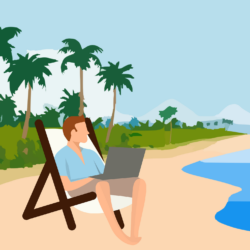



 American employees are wasting hundreds of contracted work hours a year using their work equipment for personal tasks and activities, according to a new survey from ExpressVPN. The survey, conducted by the consumer privacy and security company, found that some people are spending only 33 percent of annual contracted hours on work tasks. With a steep rise in hybrid and home working in recent years, many companies have provided employees with work devices to use in the comfort of their own homes, including work laptops, desktops, phones, and microphones.
American employees are wasting hundreds of contracted work hours a year using their work equipment for personal tasks and activities, according to a new survey from ExpressVPN. The survey, conducted by the consumer privacy and security company, found that some people are spending only 33 percent of annual contracted hours on work tasks. With a steep rise in hybrid and home working in recent years, many companies have provided employees with work devices to use in the comfort of their own homes, including work laptops, desktops, phones, and microphones. 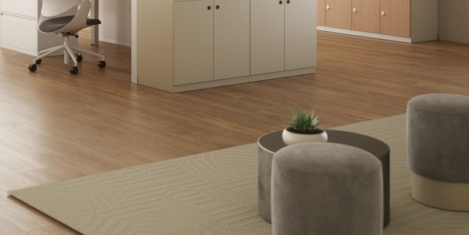
 Bisley is to present its first ever showcase at the Stockholm Furniture Fair (7-11 February 2023), illustrating the multitude of innovative ways in which the brand’s collections can support and enhance home working. Organised in four zones, the stand will focus on key products which tell the story of Bisley’s wide-ranging expertise in designing and manufacturing office furniture solutions, at home and in the workplace.
Bisley is to present its first ever showcase at the Stockholm Furniture Fair (7-11 February 2023), illustrating the multitude of innovative ways in which the brand’s collections can support and enhance home working. Organised in four zones, the stand will focus on key products which tell the story of Bisley’s wide-ranging expertise in designing and manufacturing office furniture solutions, at home and in the workplace. 

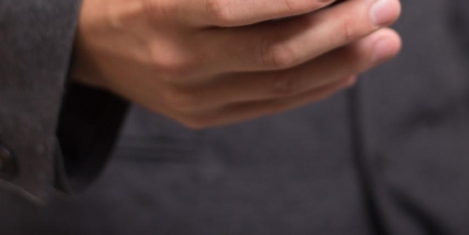





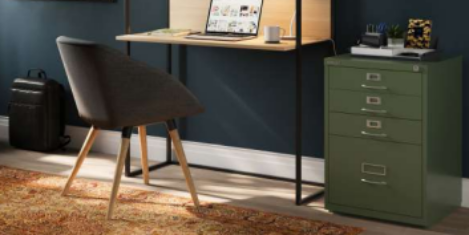
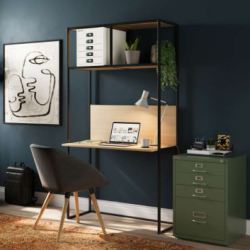

 The 4th January was the first working day of 2022 for many employees, but due to ongoing working from home restrictions the majority will not be attending their usual workplaces. According to the latest research from the Institute of Workplace and Facilities Management (
The 4th January was the first working day of 2022 for many employees, but due to ongoing working from home restrictions the majority will not be attending their usual workplaces. According to the latest research from the Institute of Workplace and Facilities Management (







November 29, 2023
Creating the epicentre: unlocking the untold benefits of next-generation office spaces
by Nathan Thomas • Comment, Flexible working, Property, Technology